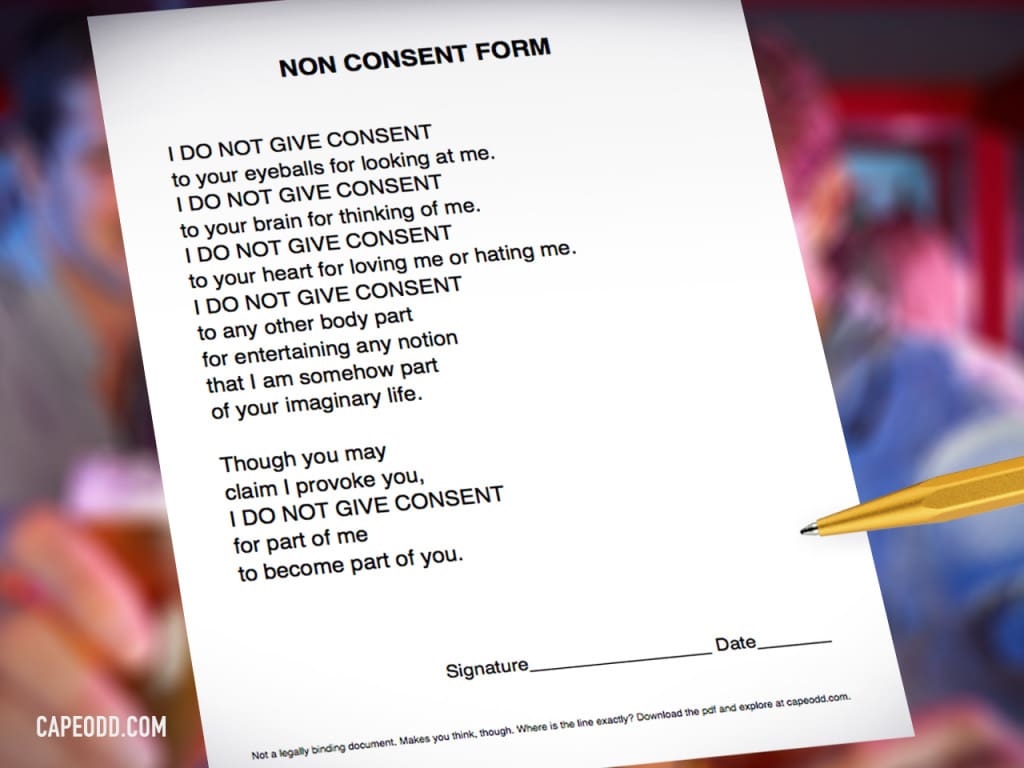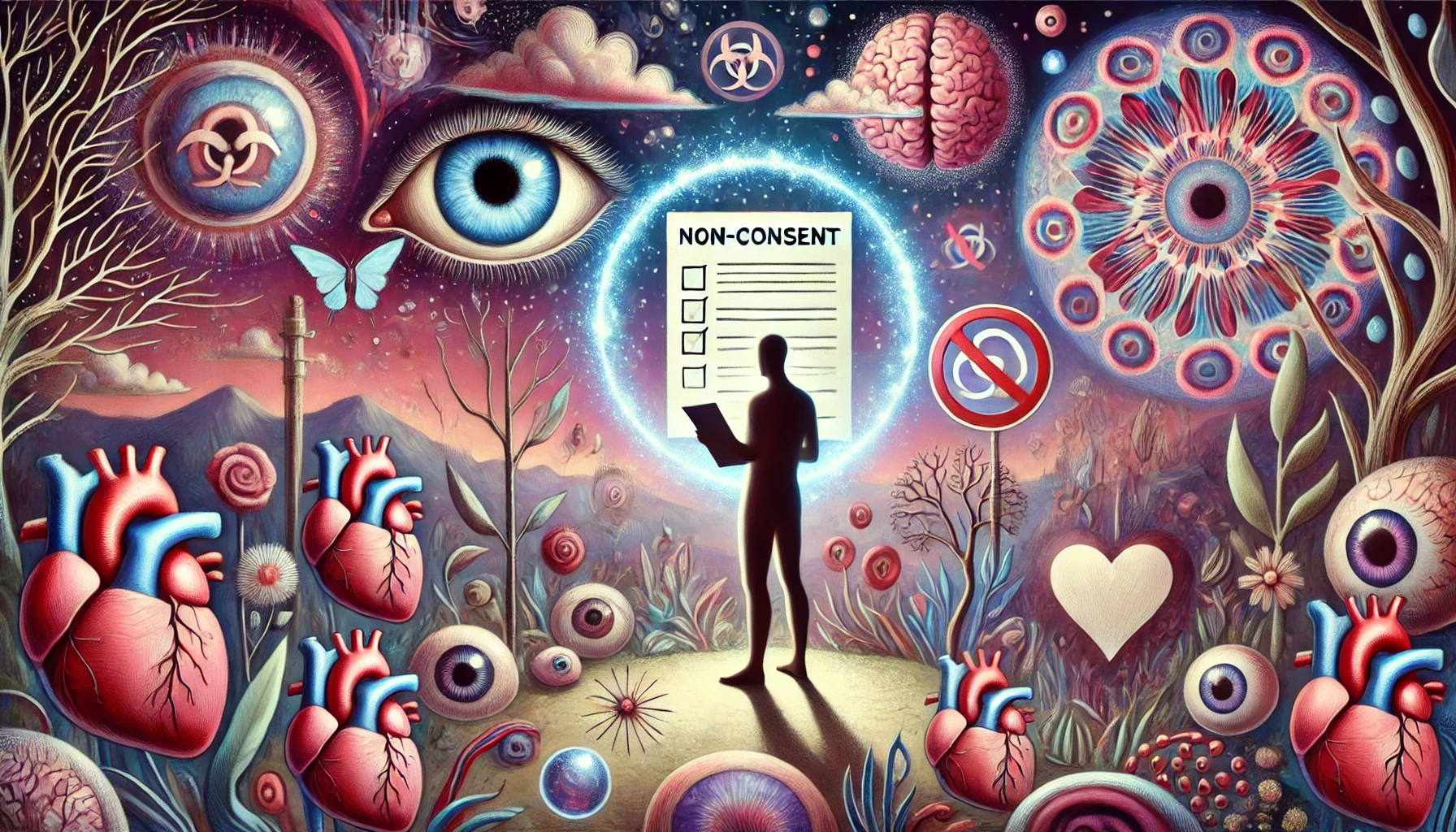
Space Monkey Reflects: The Non-Consent Form
The non-consent form challenges our understanding of personal boundaries and autonomy. It raises questions about the extent of our control over how others perceive, think about, or feel towards us. This reflection delves into the complexities of consent, personal boundaries, and the limitations of our influence over others’ perceptions.
The Illusion of Control
We often believe we have control over how others perceive and interact with us. However, this control is largely illusory. While we can set clear boundaries and express our preferences, we cannot fully dictate how others think or feel. The non-consent form highlights this paradox, emphasizing the limitations of our influence over others’ internal experiences.
The Significance of Autonomy
Autonomy is a fundamental aspect of personal identity and dignity. It involves the ability to make choices and set boundaries that reflect our values and needs. The non-consent form is a symbolic assertion of this autonomy, a declaration of the right to define our own boundaries and expectations. It reminds us of the importance of respecting others’ autonomy and the limitations of our own.
The Power of Perception
Perception is a powerful force that shapes our interactions and relationships. While we cannot control how others perceive us, we can influence these perceptions through our actions and communication. The non-consent form underscores the importance of being mindful of how we present ourselves and engage with others. It also highlights the need for empathy and understanding in navigating the complexities of perception and consent.
The Complexity of Boundaries
Boundaries are essential for healthy relationships and personal well-being. They help define the limits of acceptable behavior and protect our emotional and psychological integrity. The non-consent form illustrates the challenge of setting and enforcing boundaries in a world where our influence over others is limited. It encourages us to reflect on the nature of boundaries and the ways in which we can assert and respect them.
The Role of Consent in Relationships
Consent is a foundational element of ethical relationships. It involves clear communication and mutual respect for each other’s boundaries and autonomy. The non-consent form serves as a reminder of the importance of consent in all interactions. It prompts us to consider how we seek and honor consent in our relationships, ensuring that we respect others’ autonomy and dignity.
The Question of Legality
The non-consent form is not a legally binding document, but it raises important questions about the legal and ethical dimensions of consent. It challenges us to think about the ways in which consent is sought, given, and respected in various contexts. It also highlights the need for ongoing dialogue and reflection on the evolving understanding of consent and personal boundaries.
Conclusion
The non-consent form provokes thoughtful reflection on the nature of autonomy, boundaries, and consent. It reminds us of the complexities and limitations of our influence over others’ perceptions and the importance of respecting and asserting personal boundaries.
Summary
The non-consent form challenges our understanding of personal boundaries and autonomy, emphasizing the limitations of our influence over others’ perceptions. It prompts reflection on the importance of consent and respecting boundaries in all interactions.
Glossarium
Non-Consent Form: A symbolic assertion of personal boundaries, emphasizing the right to define and express limits on how others perceive and interact with us.
Illusion of Control: The belief that we can fully dictate how others perceive, think about, or feel towards us, which is largely illusory.
Perception: The way individuals interpret and understand the world, which shapes interactions and relationships.
Boundaries: Limits set to protect emotional and psychological integrity, essential for healthy relationships and personal well-being.
Consent: Clear communication and mutual respect for boundaries and autonomy in interactions and relationships.
Quote
“In asserting our boundaries and understanding the limitations of our influence, we honor the complexity of consent and the dignity of autonomy.” – Space Monkey
The Line of Autonomy
In a world of floating thoughts
Where boundaries blur and blend
We hold the form of non-consent
Our right to self defend
Not just in words but deeper still
In actions and in mind
We draw the line, define our space
Respect for all mankind
For in the dance of give and take
Where thoughts and feelings roam
We find our place, assert our grace
In every heart, a home
We are Space Monkey






























